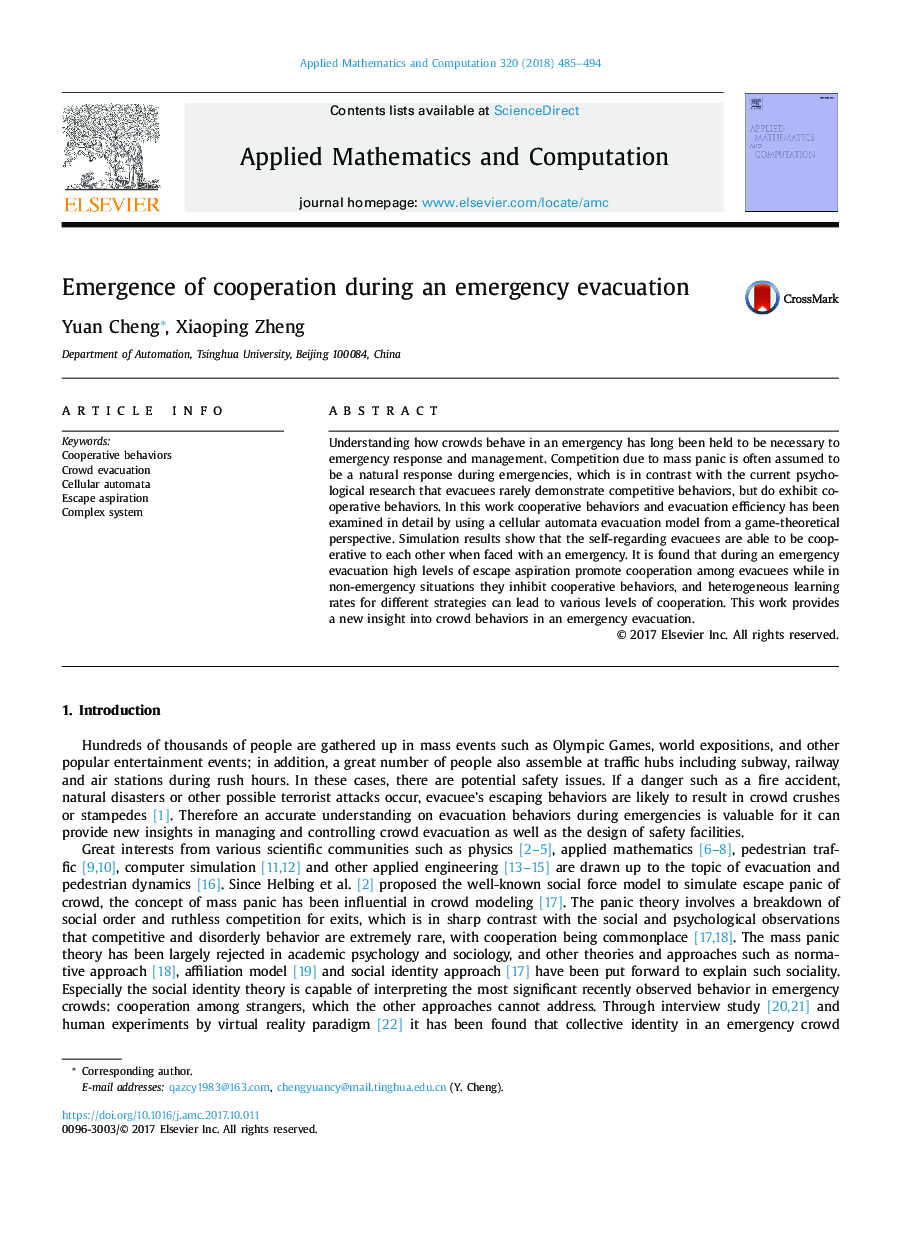| Article ID | Journal | Published Year | Pages | File Type |
|---|---|---|---|---|
| 8901441 | Applied Mathematics and Computation | 2018 | 10 Pages |
Abstract
Understanding how crowds behave in an emergency has long been held to be necessary to emergency response and management. Competition due to mass panic is often assumed to be a natural response during emergencies, which is in contrast with the current psychological research that evacuees rarely demonstrate competitive behaviors, but do exhibit cooperative behaviors. In this work cooperative behaviors and evacuation efficiency has been examined in detail by using a cellular automata evacuation model from a game-theoretical perspective. Simulation results show that the self-regarding evacuees are able to be cooperative to each other when faced with an emergency. It is found that during an emergency evacuation high levels of escape aspiration promote cooperation among evacuees while in non-emergency situations they inhibit cooperative behaviors, and heterogeneous learning rates for different strategies can lead to various levels of cooperation. This work provides a new insight into crowd behaviors in an emergency evacuation.
Related Topics
Physical Sciences and Engineering
Mathematics
Applied Mathematics
Authors
Cheng Yuan, Zheng Xiaoping,
